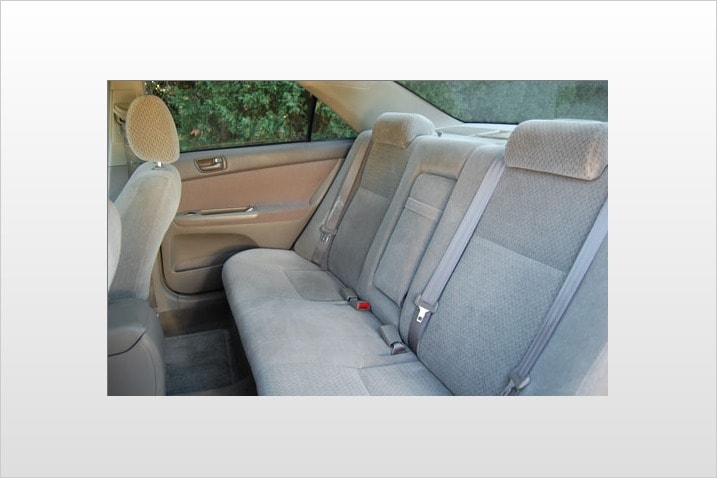Come in Swinging
Do your homework. Before you even set foot in the shop, know the names of basic parts and where they're located under the hood.
Don't worry about cramming for a test on every aspect of the inner workings of a car. All you need to do is use a few terms correctly so the mechanic wonders how much you know. Then, he's less likely to do unnecessary work to get more money out of you.
Check your owner's manual or the manufacturer's Web site for a quick reference guide. The one for my 2003 Toyota Camry showed me where some of the more important parts are under the hood. Knowing where things are will help keep your eyes from glazing over when the mechanic comes out to explain his diagnosis.
In my case, I was pretty certain my car was leaking antifreeze simply because I'd taken the trouble to type its chief symptom — "sweet smell from my car" — into a search engine. Even if you're puzzled by your car's condition, chances are someone else out there has had a similar problem and they've written about it on a discussion board or car care Web site.
It only took me about 5 minutes of reading to learn that dyes are used to look for leaks in a car's coolant system, and even less time to find an easy-to-remember name of a brand of tracer dye. When I suggested the use of a tracer dye to a repair shop owner, he said that wasn't in the game plan for my car, but was noticeably struck by the fact that I had some idea of what the mechanics might use to diagnose my problem.
As with anything, people are way more likely to take you seriously if you use proper terms. Insisting something is wrong with the "oil thingy" makes you look stupid and lazy. If you're too lazy to look something up on Google, you're too lazy to ask about a charge, or question a mechanic's decision.
Be Clear
One way to make friends with the mechanic is to make his job as easy as possible. Try to tell him as much information as he needs to know without giving him your car's life story. Think about the questions you might be asked before you step into the shop, so your answers to the mechanic will be clear and concise.
What sort of driving were you doing when you first noticed the problem? Were you on a freeway, a surface street or parked? Are you noticing any odd smells or sounds? When you describe a sound, don't try to re-create it. You'll just end up looking silly, and the mechanic still won't have a clue what you're talking about. Instead, try to use words like screeching (high- or low-pitched), grinding or thumping.
Weiss said it's a common practice for technicians to ride along with a customer when there is a complaint about strange noises. If you're worried about correctly describing the sound, ask if you can show the mechanic what you mean. It will ensure the mechanic understands what you're talking about, and if he balks at the idea, you'll know you should look for someone else to work on your car.
It's also helpful to know roughly where the sound is coming from. Grab some friends, and go driving with the windows rolled down and the radio off. It will be easy to determine whether it's coming from up front or in the back, and on the driver or passenger side.
Moral of the Story
If you do these things, and generally show interest in what the mechanic is doing, you'll feel confident, and know for sure you're getting the right work done for the right price.
And getting the right price is key when you're on a tight budget. If you're not happy with the repair cost estimate you get from the first mechanic, don't be afraid to try a second repair shop. They may not give you a lower estimate, but you'll feel confident you're not paying too much, simply because you took the trouble to do a little comparison shopping.
In my case, I was skeptical about the diagnosis from the first mechanic, so I decided to get a second opinion. The second mechanic determined that my water pump needed to be replaced, which cost me about $400 — less than I would have paid at the first shop. If you choose to shop around, be sure that you are comfortable both with the mechanics and the work they are going to do for you.
Good mechanics will appreciate your concern for your car, realizing that if they diagnose your car correctly and treat you fairly, you will be more likely to return for other work.

